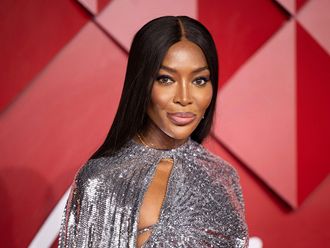
When the Miss America pageant started in 1921, having young women parade around in bathing suits seemed like a great way to get tourists to come to the Atlantic City Boardwalk after Labor Day.
But how America views women has changed drastically since then, and the Miss America Organization is run by women who don’t think it’s such a hot idea.
Accordingly, when the pageant is held this September, nearly a year into the #MeToo era, it will no longer have a swimsuit competition.
“We’re not going to judge you on your appearance because we are interested in what makes you you,” Gretchen Carlson, a former Miss America and the new head of the organisation’s board of trustees, said in making the announcement on ABC’s Good Morning America.
For decades, women’s groups and others had complained that the swimsuit portion was outdated, sexist and more than a little silly.
Carlson, whose sexual harassment lawsuit against Fox News Chairman Roger Ailes led to his departure, said the board had heard from potential contestants who lamented, “We don’t want to be out there in high heels and swimsuits.”
The announcement came after a shake-up at the organisation that resulted in the top three positions being held by women. The overhaul was triggered by an email scandal last December in which Miss America officials mocked winners’ intelligence, looks and sex lives.
Instead of showing off in a bathing suit, each contestant will interact with the judges to “highlight her achievements and goals in life and how she will use her talents, passion and ambition to perform the job of Miss America,” the organisation said.
Carlson said the evening-wear portion of the competition will also be changed to allow women to wear something other than a gown if they want. The talent portion of the contest will remain.
“It’s what comes out of their mouths that we care about,” Carlson said.
Leanza Cornett, Miss America 1993, supported the dropping of the swimsuit competition.
“I hated it,” she said. “I always felt awkward and uncomfortable.”
She added: “In the climate of #MeToo, I think it’s a really wise decision. We’re living in a different era now, and when we move forward for the empowerment of women, we will be taken much more seriously, and I think that’s huge.”
But Kendall Morris, who competed in 2011 as Miss Texas, said the swimsuit competition taught her how to eat healthy and exercise, “not just for 15 seconds on stage but for a lifetime. It taught me a lifelong discipline beyond the Miss America stage.”
Carlson said she is not worried ratings for the nationally televised broadcast, set for September 9 on ABC, might suffer. She said that the swimsuit portion is not the highest-rated portion and that viewers seem more interested in the talent competition.
The Miss America pageant is not the cultural event it once was. The 1988 broadcast was seen by 33.1 million viewers, according to the Nielsen company. Last year, 5.4 million people watched.
Because many of the state and local competitions that decide the Miss America finalists have already begun, the dropping of the swimsuit portion will not take effect at those levels until next year’s competition, the organisation said.
Mallory Hytes Hagan, Miss America 2013, was a particular target of the emails, many of which ridiculed her weight gain after she won the title. In a Facebook video, Hagan said she weighed 56kg when she was crowned. She said she is now 74kg, which she said most people would consider normal.
She is running for Congress in Alabama as a Democrat.
“There are tonnes of women across this country who are not ‘swimsuit-ready’ who are doing some really [cool] stuff in their communities,” she said. “We should be honouring them, and that doesn’t involve putting on a two-piece bathing suit and walking on stage in heels.”













